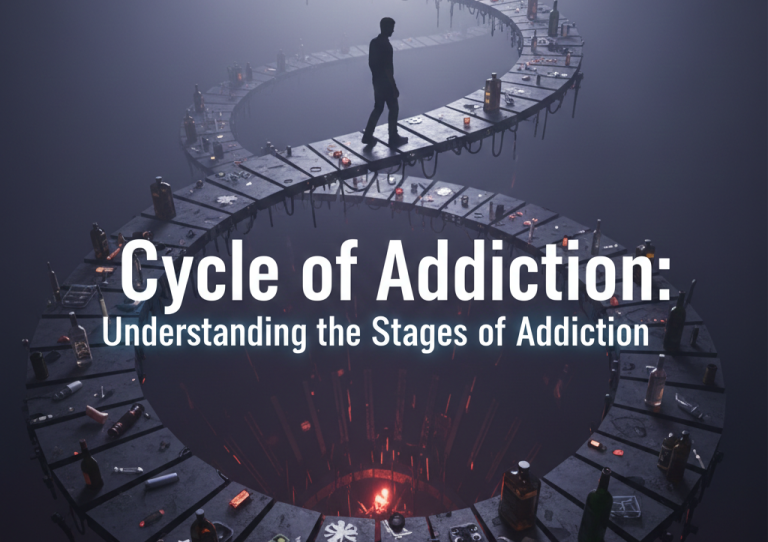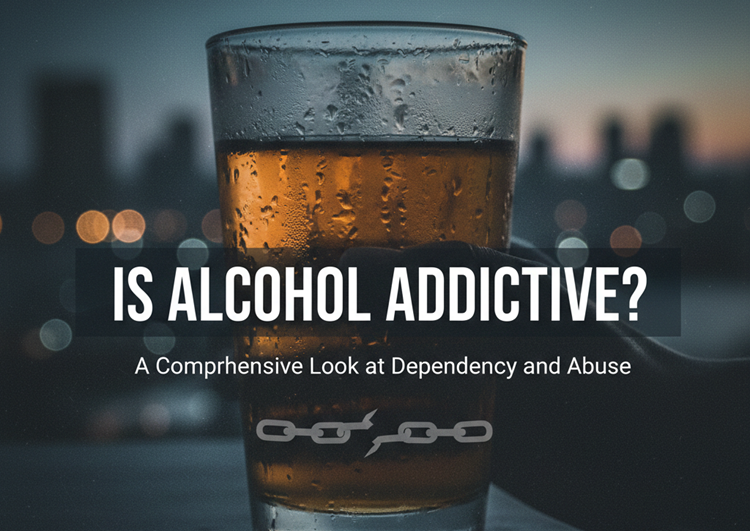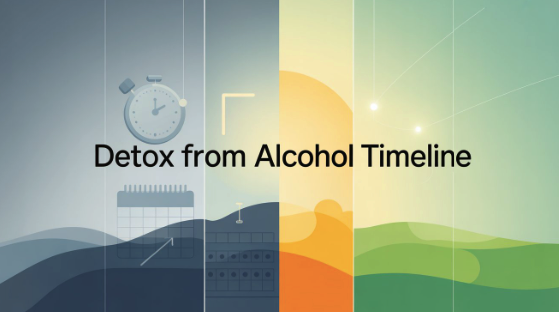Substance use disorder (SUD) refers to a group of problems marked by an inability to regulate the use of substances such as drugs, alcohol, or medications. These can have a significant impact on one’s health, relationships, and general well-being. However, there is variation in severity across this spectrum. Let’s take a look at what SUDs are and the most serious types.
What are Substance Use Disorders?
SUDs are complicated brain disorders caused by regular drug use. Over time, the brain adjusts to the presence of the chemical, making it harder to operate without it. This can result in cravings, obsessive behavior, and a disdain for unfavorable consequences.

The amount of symptoms experienced by a person determines the severity of their SUD. The DSM-5-TR, a diagnostic handbook used by mental health professionals, defines several levels of severity based on factors such as tolerance, withdrawal symptoms, and how much substance use interferes with everyday living.
The Spectrum of Substance Use Disorders
Several essential elements determine the severity of an SUD. This includes:
Compulsive use: Compulsive usage is the inability to regulate substance use despite unfavorable effects. Someone with moderate SUD may be able to reduce or discontinue use on occasion, but someone with severe SUD may find it practically difficult.
Tolerance: Tolerance occurs when the body adjusts to the presence of a chemical, requiring increasing amounts to have the same effect. Someone with a moderate SUD may exhibit tolerance to a lower degree than someone with a severe SUD.
Withdrawal symptoms: Withdrawal symptoms are physical and psychological symptoms that occur when a person discontinues usage of a substance over an extended time. The severity and length of withdrawal symptoms might indicate the severity of the substance use disorder.
Impairment: This term refers to the detrimental effects that substance abuse has on a person’s daily life. This might entail difficulties at job, education, in relationships, and with mental or physical health.
What’s the difference between substance use disorder and addiction?
Substance use disorder (SUD) and addiction are similar concepts, however, there are several important differences:
Severity: SUD is a wide term that refers to a range of problematic drug use, from moderate to severe. Addiction is regarded as the most severe manifestation of SUD.
Control: People with SUD may retain some control over their drug use, whereas addiction is defined by a loss of control. People with addiction continue to use the substance despite the negative implications in their lives.
Diagnostic Term: SUD is a clinical diagnostic included in the Diagnostic and Statistical Manual of Mental Disorders (DSM-5). Addiction is not a precise diagnosis, but rather the most severe type of substance use disorder.
Both SUD and addiction include problematic drug use, which can result in physical and psychological dependency. If you believe you or someone you know is battling with substance abuse, you should seek professional treatment. Treatment is accessible and effective.
Signs of Substance Use Disorders
These symptoms may differ based on the drug being consumed and the specific conditions. If you or someone you know is exhibiting these symptoms, it is critical to get assistance from a healthcare professional or addiction expert.
Increased Tolerance: requiring more of the drug over time to get the desired effect.
Withdrawal Symptoms: Withdrawal symptoms are physical or psychological symptoms that occur after attempting to quit using a drug.
Loss of Control: The inability to quit or minimize substance usage despite repeated attempts.
Neglecting Responsibilities: Choosing substance use above commitments like employment, school, or family.
Cravings are strong cravings or want to utilize a drug.
Social Withdrawal: Social withdrawal refers to withdrawing from friends, family, or social activities to consume the substance.
Changes in conduct: Sudden shifts in mood, conduct, or personality.
Financial Problems: Having financial issues as a result of spending money on the drug.
Physical Changes: Physical changes include unexplained weight loss or growth, changes in appearance, and a deterioration in personal cleanliness.
Causes of Substance Use Disorders
Substance use disorders can result from some circumstances, including:
Genetics: Some people may be genetically prone to addiction owing to hereditary characteristics that influence how their bodies and minds react to drugs.
Environment: Growing up in a substance-using environment, as well as enduring trauma, abuse, or neglect, might raise the likelihood of developing a substance-use disorder.
Psychological factors: Mental health illnesses such as depression, anxiety, or trauma-related disorders can lead to drug addiction because people use substances to self-medicate or cope with their symptoms.
Peer pressure and social influences: Being surrounded by peers or social circles that mainstream or promote drug use can lead to experimentation and, eventually, addiction.
Early exposure: Beginning substance use at a young age raises the risk of having a substance use disorder later in life.
Biological factors: Repeated drug use can cause changes in brain chemistry and structure, leading to physical dependency and addiction.
Stress: Excessive or persistent stress can cause people to seek solace via substance abuse, resulting in addiction.
Lack of coping skills: Individuals who lack good coping techniques to deal with life pressures or emotional issues may turn to substances to cope, which can eventually lead to a substance use disorder.
Treatment For Substance Use Disorder
Substance use disorder (SUD) is a complicated problem, but there is good news: effective therapies exist. The most successful techniques are customized, which means they address each person’s distinct needs. Treatment frequently requires a variety of techniques, which include:

Medication: Medications can aid with withdrawal symptoms, desire reduction, and relapse prevention. Different drugs are prescribed for various substances.
Therapy: Talk therapy, such as cognitive behavioral therapy, can assist patients in developing healthy coping mechanisms, identifying triggers, and changing thinking patterns associated with substance use.
Support Groups: Support groups provide a secure environment for persons in recovery to interact with others who understand their struggles and give support.
If your loved one is dealing with a drug use issue, please know that help is available. There are several resources accessible in Orlando.
Cognitive and Behavioral Therapies
Here are some examples of successful therapy for individuals with SUDs:
- Cognitive Behavioral Therapy (CBT)
- Dialectical Behavioral Therapy (DBT)
- Assertive Community Treatment (ACT)
- Therapeutic Communities (TCs)
- Contingency Management (CM)
Participating in self-help groups, such as Narcotics Anonymous, can also be beneficial in SUD therapy. These programs encourage habit change via self-help and peer assistance.
Benefits of Substance Use Disorder Treatment
Substance use disorder (SUD) is a complicated illness characterized by uncontrolled use of a substance despite its adverse consequences. People with SUD have a strong concentration on consuming a certain substance(s), such as alcohol, tobacco, or illicit narcotics, to the point where their ability to function in everyday life is hindered.
Treatment for SUD may be quite beneficial, and there are several advantages to obtaining assistance. Here are a few of the most important:
Improves physical health: Drug addiction can harm your body. Treatment can benefit your overall health and well-being.
Improves mental health: Substance abuse can contribute to mental health problems, including anxiety and depression. Therapy can help you deal with these challenges and improve your mental health.
Strong relationships: Substance abuse can damage your relationships with loved ones. Therapy can help you regain trust and repair broken relationships.
Increased productivity: Substance abuse can make it difficult to hold down a job or be effective in school. Treatment can help you get back on track and accomplish your goals.
Reduced chance of relapse: Treatment can assist you in developing the necessary skills and coping strategies to avoid relapse.
Overall, substance use disorder treatment provides a path to recovery, enabling individuals to reclaim their lives, rebuild relationships, and contribute positively to society.
Help is Available at Orlando Treatment Solutions
Substance use problems, including addiction, are curable. There are several evidence-based treatments and support groups available to assist people in overcoming addiction and disorders.
If you or someone you know is struggling with Substance use disorder (SUD), there is help available. Treatment can be life-changing. Contact Orlando Treatment Solutions today or call us at (321) 415-3213 for more about our Substance Use Disorder treatment program.



























